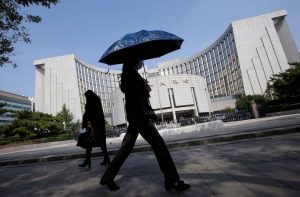Chinese regulators are pressing banks to fast-track approvals of new loans to cash-starved private property developers, sources claim.
Most top domestic banks have so far shied away from significantly bolstering credit exposure to the crisis-hit sector despite repeated nudges from Beijing, dashing hopes of a revival in an industry crucial for the economy.
Now, Beijing wants the banks to “whitelist” certain real estate firms to help ease the sector’s unprecedented liquidity squeeze and encourage home purchases, after new home prices fell in February for an eighth straight month.
The property sector in the world’s second-largest economy has lurched from one crisis to another since 2021, after a regulatory crackdown on developers’ high leverage led to a liquidity crisis.
Also on AF: Private Equity Deals in Asia Near The Worst in a Decade
Developers say banks have been reluctant to grant new loans to property projects, while mostly extending maturity and lowering interest rates of existing loans.
The “whitelist” programme covers projects of state-backed and private developers that need fresh financing of 1.5 trillion yuan ($207.51 billion), one of the sources revealed.
In last week’s directive, the regulator gave banks until the end of June to finish approval and issuance of all loans, the second source said.
“It reiterated that banks should treat projects backed by private and state-owned developers equally,” the source added.
The instruction followed statements by some bankers that they preferred to extend credit mainly to the projects of state-owned firms.
“The banks are very much aware that they could lose money on these [property] loans. But the decision isn’t entirely up to them,” said Christopher Beddor, deputy director of China research at Gavekal Dragonomics.
China Banks’ Credit Aversion
Launched in January, the “whitelist” enables city governments to recommend suitable residential projects to banks for financial support, and to coordinate with them to meet project needs.
Chinese banks’ aversion to extending fresh credit to the ailing property sector stems from worries over the impact on their asset quality and profitability, which has already been hit by tepid loan demand and the sputtering economy.
Three of the nation’s top five state-owned lenders are set to report shrinking net income in 2023 when the sector kicks off its earnings parade this week, while the other two are expected to report subdued profit growth, LSEG data shows.
A key gauge of profitability, net interest margins (NIM), are estimated to be further squeezed to record lows ranging from 1.29% to 1.74%, the data showed, below a threshold of 1.8% that regulators see as necessary to reasonable profitability.
Faced with profitability pressure, initially, as part of the “whitelist” mechanism, banks just adjusted repayment plans on existing loans, three private developers said, and all the loans were issued only to projects in bigger cities.
But in a change of attitude after the regulator’s instruction, an executive at a private developer, speaking on condition of anonymity, said the firm was told by banks that new credit could be granted as soon as by the end of this month.
- Reuters with additional editing by Sean O’Meara
Read more:
China Told it Must ‘Reinvent Itself’ to Turn Economy Around
China Bonds Bonanza Fuelled by ‘Asset Famine’, Property Woes
Mainland Chinese Eye Hong Kong Property After Duties Ditched
China’s Property Crisis Slows in 2024 But Downturn Yet to Ease
























